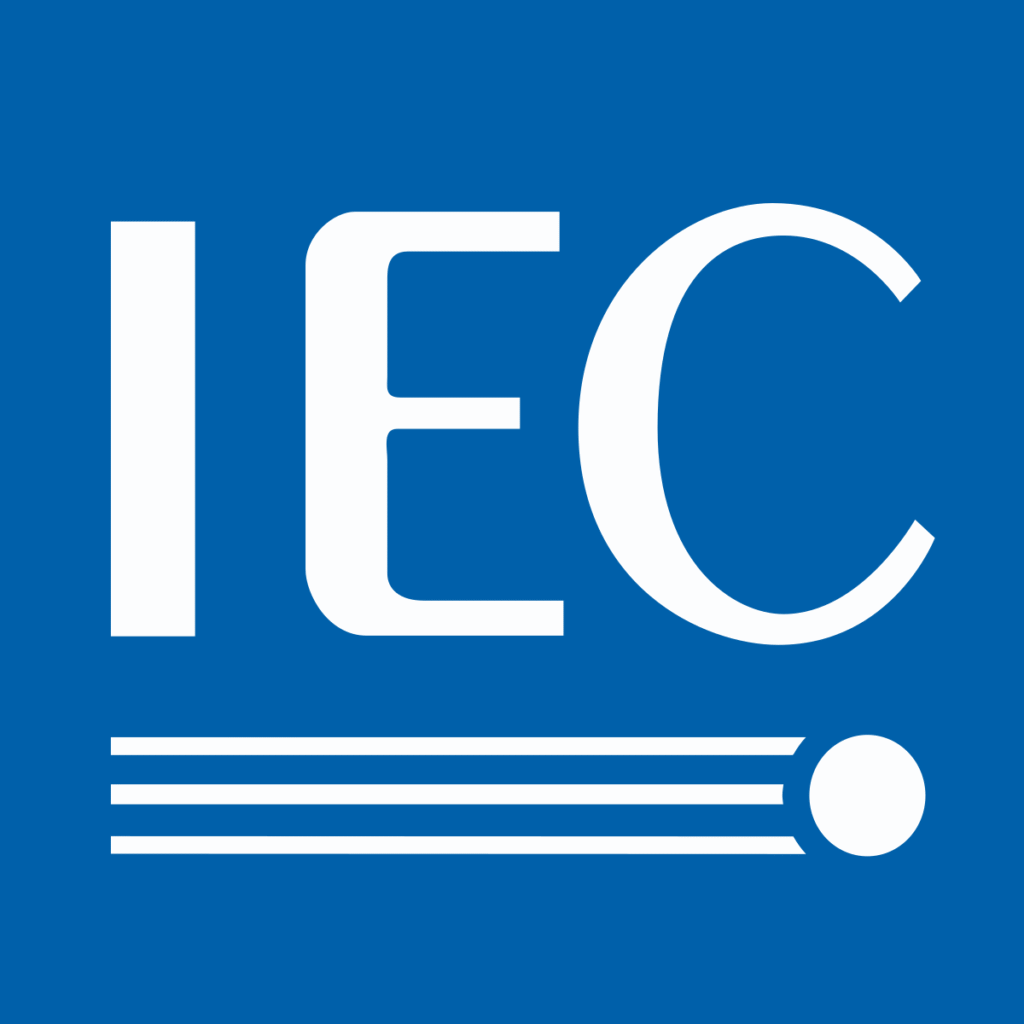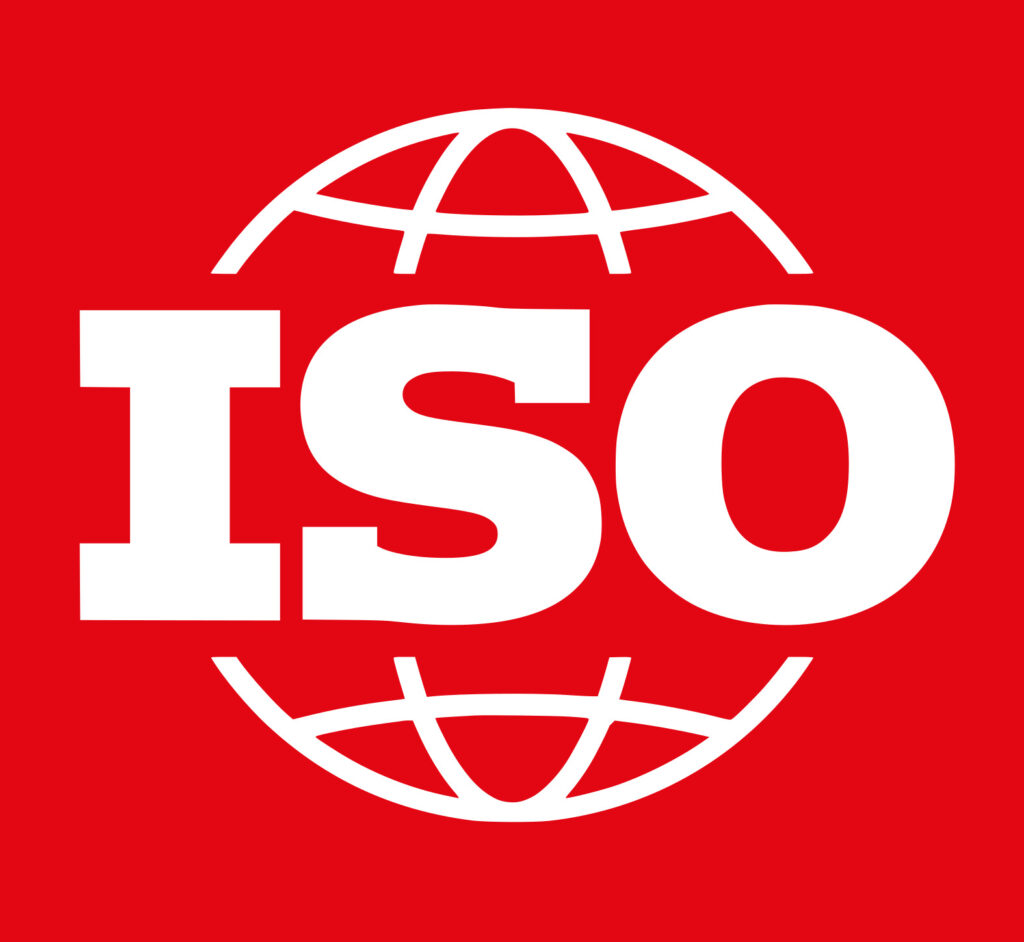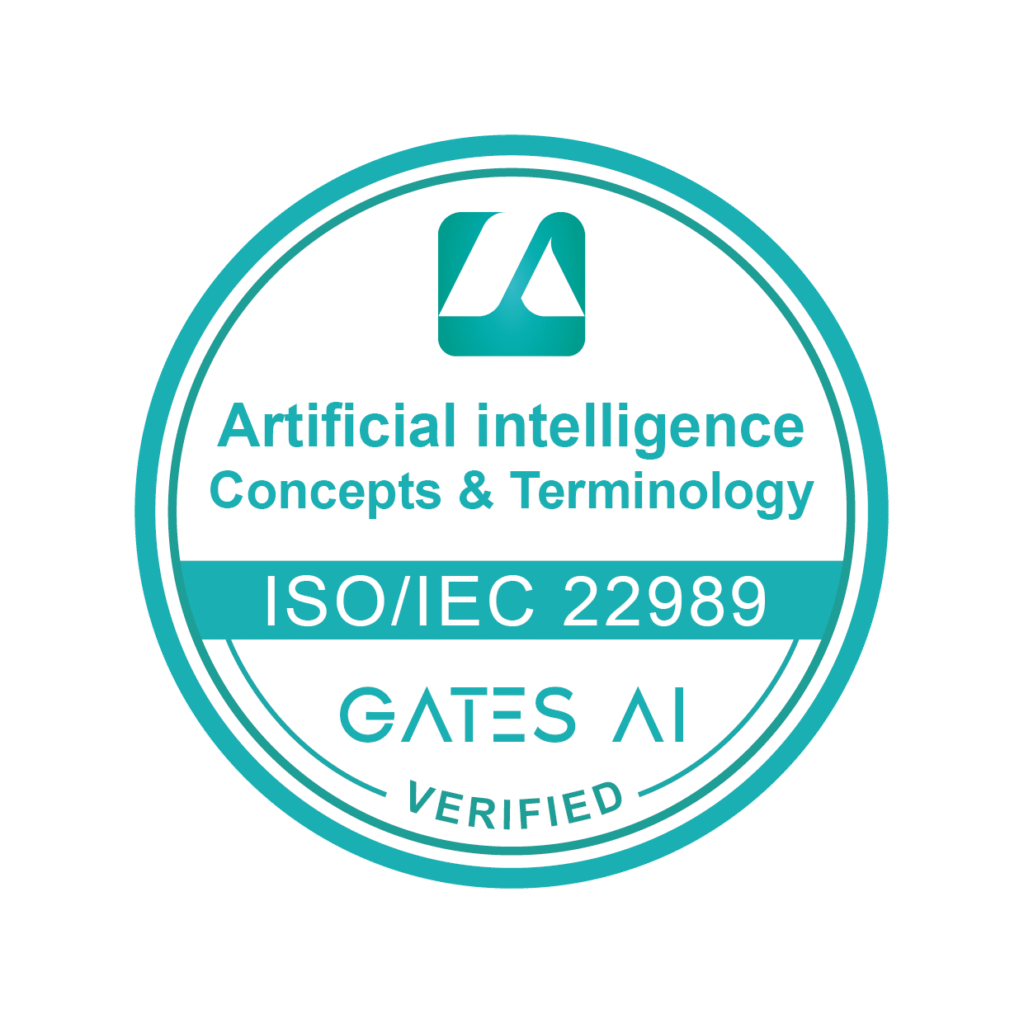ISO/IEC 22989
Information technology — Artificial intelligence — Artificial intelligence concepts and terminology

- Our Expertise
What is ISO/IEC 22989?
Why is ISO/IEC 22989 important?
As AI transforms industries, ISO/IEC 22989 provides an essential foundation for effective communication, governance, and compliance. Its comprehensive framework enables organizations to: Communicate about AI internally and externally. Align with regulatory requirements.


Benefits
- Fostering informed policymaking
- Guiding ethical discourse
- Promoting transparency and explainability
- Enhancing clarity and reliability
What’s Covered
Training data
Dataset used for training AI systems
Inference
Process of applying an AI system to produce results
Neural network
Model inspired by biological neural networks
Reinforcement learning
Machine learning maximizing rewards through actions
What’s IEC & ISO

International Electrotechnical Commission
The International Electrotechnical Commission (IEC) develops and publishes global standards for electrical, electronic, and related technologies.

International Organization for Standardization
ISO is an independent, non-governmental international organization. It brings global experts together to agree on the best ways of doing things.
Our Seal

Our Certificate

Cross-Standard Harmonization
ISO/IEC 22989 functions within a broader ecosystem of AI standards, facilitating interoperability. This includes ISO/IEC 42001 for AI management systems and ISO/IEC 23053 for AI trustworthiness assessment. These standards offer a comprehensive understanding and guide urbanization and governance efforts.
- Frequently Asked Questions
Got Questions? We’ve Got Answers.
Who is ISO/IEC 22989 for?
Organizations of any size involved in developing, providing, or using AI-based products or services. It is applicable across all industries and relevant for public sector agencies as well as companies or non-profits.
What types of standards does ISO have for AI?
ISO has a number of standards that help mitigate the risks and maximize the rewards of AI, including ISO/IEC 22989, which establishes terminology for AI and describes concepts in the field of AI; ISO/IEC 23053, which establishes an AI and machine learning (ML) framework for describing a generic AI system using ML technology; and ISO/IEC 23894, which provides guidance on AI-related risk management for organizations.
ISO/IEC 42001 on the other hand is a management system standard (MSS). Implementing this standard means putting in place policies and procedures for the sound governance of an organization in relation to AI, using the Plan‐Do‐Check‐Act methodology. Rather than looking at the details of specific AI applications, it provides a practical way of managing AI-related risks and opportunities across an organization. It therefore provides value for any business or entity.
What is an artificial intelligence management system?
ISO/IEC 22989, first published in 2022, addressed the need for a unified language in AI discourse. Developed by international experts, it applies across cultural, technical, and regulatory contexts, reflecting the array of technical aspects and ethical considerations crucial for AI development. This holistic approach supports the preparation of organizations to meet international standards.
What are the main benefits of implementing ISO/IEC 22989?
- Explainability: Extent to which an AI system’s mechanics can be explained in human terms
- Robustness: Ability to maintain performance under varying conditions
- Transparency: Property ensuring information about development, deployment, and operation is available
Does this standard apply to all AI systems?
Yes, it’s designed to be applicable across various AI applications and contexts.
